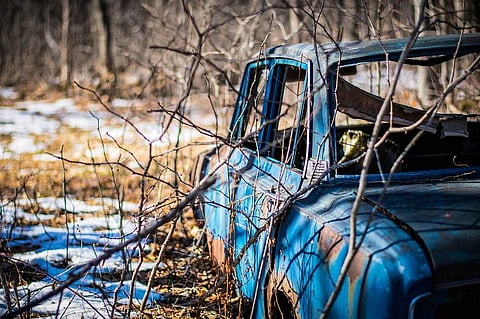

If you live in a coastal town in India IIT Bombay has bad news for your car. We define a car's safety standards by the number of airbags, seatbelts and ABS but the study says that it's more important to protect the steel, which is the whole structure of the car, against corrosion. The study, a joint effort by IIT Bombay and International Zinc Association, surveyed 450 vehicles in Chennai. The findings highlight the impact of weather conditions on the safety of personal cars that cost less than Rs 10 lakhs.
Spearheaded by Dr Anand Khanna, Former Professor, Department of Metallurgy Engineering, IIT Bombay, with a team of two PhD students, the study was conducted in the month of March 2018. Based on a series of parameters, this closed car survey studied cars across brands to understand the extent of corrosion imperfection categories like blisters, surface rust and perforation on the external panels and body parts.
While cars, in general, tend to lose physical integrity if the steel parts are corroded, the risk is more in coastal areas. “The study is an eye-opener for car owners as it clearly indicates the causes for imperfection that arise owing to climatic conditions. Currently, there is almost zero awareness about how these imperfections over the years grow into life-threatening hazards for car owners and we are confident that this study will create an impact by creating the desired awareness among the public," said Dr Khanna. "Chennai being an auto manufacturing hub we are confident that the companies will consider the insights from the study and align their processes in order to increase safety aspect for the consumer.”
The survey also states that out of the four major parts inspected, the rocker panel exhibited the highest damage in terms of the number of imperfections, blistering and surface rust. This can be because it's placed so close to the ground and henceforth effects of road debris, stagnant water and such.
One of the key findings of the study is that the number of vehicles exhibiting certain imperfection increased with the age of the vehicle. Of the surveyed cars manufactured between 2008 and 2016, there is most statistical significance for the corrosion of vehicles that are 5-10 years old. It is also quite evident that the number of blisters and surface rust were more predominant than perforation.
Dr Dough Rourke, Consultant, International Zinc Association, Canada, said, “During the course of this study one of the underlying insight that emerged is the need for increased galvanisation of automotive parts, which could drastically help improve the safety standards in India. There is a striking difference in galvanization of body parts in cars manufactured for Indian consumers (15-30 per cent) and cars shipped out of India (70 per cent). We are confident that this will urge policy-makers to take a close look at the need for the country’s own Corrosion Prevention Act.”
